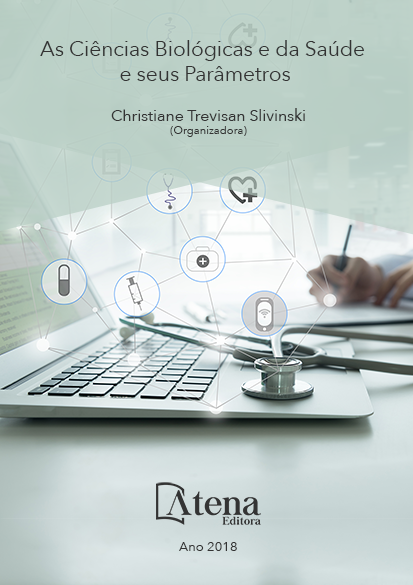
IMPORTÂNCIA DA SIMULAÇÃO REALÍSTICA PARA O ENSINO DE URGÊNCIA E EMERGÊNCIA
Frente às constantes mudanças
na educação do ensino superior, destaca-se a
importância da implantação de novos métodos
de ensino-aprendizagem, como a simulação
nas habilidades de urgência e emergência. O
objetivo desse estudo foi buscar na literatura
estudos que evidenciam a importância da
simulação realística para o ensino de urgência e
emergência. Trata-se de uma revisão narrativa
da literatura, nas bases de dados Lilacs, Scielo
e Google Acadêmico, utilizando as palavraschave: ‘’Simulação’’ and ‘’Educação em Saúde’’
and “Atendimento de Urgência” or “Atendimento
de Emergência”. Os artigos foram selecionados
pelo ano de publicação (2012-2017) e idioma
(português). Foram encontrados 463 (56,25%)
resultados no Scielo; 161 (19,56%) no Lilacs;
e 199 (24,17%) no Google acadêmico, após
seleção dos estudos, compuseram a amostra
um total de 8 artigos. Os artigos evidenciaram
que a simulação permite ao estudante um
aprimoramento que pratique sua atuação
previamente, podendo cometer erros em
ambientes simulados e, por meio do debriefing,
reformular sua conduta com êxito. A experiência
da simulação promove aumento da confiança e
maior engajamento do acadêmico em relação
à sua conduta, decorrente da vivência de
diversas situações em um cenário previamente
programado. Embora o uso da simulação seja
muito relevante nos cursos da área da saúde,
existe um maior número de estudos que
relacionam a simulação realística em urgência
e emergência na área médica. Portanto,
novos estudos precisam ser realizados para
se obter uma amostra significativa quanto ao
impacto desta metodologia no aprendizado dos
estudantes.
IMPORTÂNCIA DA SIMULAÇÃO REALÍSTICA PARA O ENSINO DE URGÊNCIA E EMERGÊNCIA
-
DOI: Atena
-
Palavras-chave: Educação em Saúde; Atendimento de Urgência; Atendimento de Emergência; Simulação.
-
Keywords: Health Education; Urgent Care; Emergency Response; Simulation.
-
Abstract:
Faced with the constant changes in higher education, the importance of
the implementation of new teaching-learning methods, such as simulation in emergency
and emergency skills, is highlighted. The objective of this study was to search the
literature for studies that highlight the importance of realistic simulation for emergency
and emergency teaching. It is a narrative review of the literature, in the databases
Lilacs, Scielo and Google Scholar, using the keywords: ‘’ Simulation ‘’ and ‘’ Health
Education ‘’ and ‘’ Emergency Care ‘’ or ‘’ Emergency”. Articles were selected by year
of publication (2012-2017) and language (Portuguese). We found 463 (56.25%) results
in Scielo; 161 (19.56%) in Lilacs; and 199 (24.17%) in Google academic, after selecting
the studies, composed a total of 8 articles. The articles showed that the simulation
allows the student an improvement that practices their performance previously, being
able to make mistakes in simulated environments and, through debriefing, reformulate
their conduct successfully. The experience of the simulation promotes an increase
of confidence and greater commitment of the academic in relation to their conduct,
resulting from the experience of several situations in a previously scheduled scenario.
Although the use of simulation is very relevant in health care courses, there is a greater
number of studies that relate realistic simulation in emergency and emergency in the
medical area. Therefore, new studies need to be performed to obtain a significant
sample regarding the impact of this methodology on student learning.
-
Número de páginas: 15
- Emilli Karine Marcomini


